
(1).
About Online and Traditional MBA
Many enterprise college students and experts keep their training route with an MBA. Some pick a finance concentration; others cross for entrepreneurship, relying on what they’re aiming to acquire with the degree. However, there may be additionally the quandary of selecting a conventional software or a web one. If you’re questioning whether or not brick-and-mortar training is proper for you, or in case you ought to take an extra contemporary-day route; examine directly to discover which MBA is proper for you.
Online
MBA
Online MBAs are a developing famous choice for lots of aspiring commercial enterprise students. Considering the power that any online software offers, it doesn’t come as a marvel to look that a big range of college students have become to online studies. There are many motives as to why a person could pick an internet application over a brick-and-mortar version, from having different duties to truly thinking about the net alternative extra effortlessly.
Traditional
MBA
Traditional MBAs refer to packages that provide lectures and publications held in conventional face-to-face classrooms. Such applications are commonly attractive to people who advantage from hands-on steering and are regularly sought out via way of means of undergraduates who simply completed their bachelor’s degree. Traditional packages additionally provide extra areas for socializing. So, if you’re someone who enjoys catching up with colleagues at some point during breaks, or the weekend, and having a look at sessions, it would simply be the component for you.
(2).
Difference between online MBA and Traditional MBA
There are several differences between online MBA programs and traditional MBA programs in India. Here are some key differences:
| Basis of Difference | Description |
| Format | The main difference between online MBA programs and traditional MBA programs is the format. Traditional MBA programs are typically delivered in a face-to-face classroom setting, while online MBA programs are delivered entirely online. |
| Flexibility | Online MBA packages provide extra flexibility than conventional MBA packages. With online MBA programs, students can complete coursework at their own pace and on their own schedule. This is particularly beneficial for working professionals who cannot take time off to attend classes. Traditional MBA programs require students to attend classes on a set schedule, which can be difficult for working professionals or students with other commitments. |
| Cost | Online MBA applications are usually much less luxurious than conventional MBA applications. This can make it more affordable for students who are paying their own way or have limited financial resources. Traditional MBA programs can be very expensive, particularly for students who need to pay for housing and other living expenses while attending school. |
| Networking opportunities | Traditional MBA programs offer numerous opportunities for networking, including in-person classes, group projects, and extracurricular activities. This can be particularly valuable for students looking to build relationships in their field. Online MBA programs do not offer the same opportunities for in-person networking and building relationships with fellow students and faculty. |
| Curriculum | The curriculum for online MBA programs and traditional MBA programs is often similar, but the delivery methods may differ. Online MBA programs may rely more heavily on self-paced learning modules and virtual simulations, while traditional MBA programs may incorporate more case studies, guest lectures, and group projects. |
Ultimately,
the decision between an online MBA
program and a traditional MBA program in India will depend on the
individual student's needs and goals. It is important to carefully consider the
differences and similarities between the two options before making a decision.
(3).
Top MBA colleges in India
There are many top MBA colleges in India, and the rankings can vary depending on the source and criteria used. Here are some of the top MBA colleges in India according to various rankings:
| Name of College | Description |
| Indian Institute of Management (IIM) Ahmedabad | The Indian Institute of Management Ahmedabad (IIM Ahmedabad) is an organizing college in Ahmedabad, Gujarat, India. The College was made a Nationally Significant Institute in 2017 by the Government of India's Human Resources Department. |
| IIM Bangalore | The Indian Institute of Management Bangalore (IIM Bangalore or IIMB) is a public corporate department and institute of national importance based in Bangalore, India. It was established in 1973 and was the third IIM to be established after IIM Kolkata and IIM Ahmedabad. |
| IIM Calcutta | IIM Kolkata is one of the pinnacle three Corporate Industrial Colleges in India. It was established in 1961 in partnership with the Sloan School of Management (MIT), the Ford Foundation, and the Government of West Bengal along with the extensive help and collaboration of the Indian Business Brotherhood. |
| IIM Lucknow | Indian Institute of Management Lucknow is a public commercial company college in Lucknow, Uttar Pradesh, India. It changed into mounted in 1984 because the fourth Indian Institute of Management through the Government of India. IIM Lucknow gives post-graduate diplomas, fellowships, and government packages in management. |
| IIM Kozhikode | The Indian Kozhikode Institute of Management (IIM Kozhikode or IIMK) is an autonomous public business university based in Calicut (Kozhikode), Kerala. The Institute was established in 1996 by the Government of India in cooperation with the Government of Kerala and is one of the 20 Indian Institutes of Management (IIM). |
| Faculty of Management Studies (FMS) Delhi | Faculty of Management Studies University of Delhi is a main commercial enterprise college placed in New Delhi, India. It become installed in 1954 below the umbrella of the University of Delhi and is frequently mentioned as one of the most pleasant commercial enterprise faculties in India. |
| Indian School of Business (ISB) Hyderabad | The Indian School of Business is a private business department established in India in 2001. It has parallel locations in India, in Hyderabad and Mohali. It offers certificates in various postgraduate management programs. |
| XLRI Jamshedpur | XLRI - Xavier School of Management (XLRI or previously Xavier Labor Relations Institute) is a personal commercial enterprise college run with the aid of using the Society of Jesus (Jesuits) in Jamshedpur, Jharkhand, India. It became based in 1949 inside the steel town of Jamshedpur as India's oldest change school. |
| SP Jain Institute of Management and Research (SPJIMR) Mumbai | The S. P. Jain Institute of Management and Research is a personal non-income post-graduate control college primarily based totally in Mumbai, India. Founded in 1981 under the aegis of Bharatiya Vidya Bhavan, The institute offers several full-time and part-time management programs. |
| Management Development Institute (MDI) Gurgaon | Management Development Institute is a private business enterprise School in India. It changed into mounted in 1973 with the aid of using Industrial Finance Corporation of India and is placed in Gurgaon, an industrial hub close to the Indian capital of New Delhi. |
Other
notable MBA colleges in India include
IIM Indore, IIM Shillong, IIM Ranchi, IIM Rohtak, IIM Trichy, IIM Udaipur, Symbiosis Institute of Business Management Pune, and T. A. Pai ManagementInstitute Manipal.
It is important to note that the rankings are not the only factor to consider when choosing an MBA college in India. Other factors to consider include program specializations, faculty expertise, campus facilities, placement opportunities, and overall fit with your personal and professional goals.
(4).
Online v/s Traditional MBA Programs: Pros and Cons
Online MBA programs and traditional MBA programs both have their own set of advantages and
disadvantages in India. Here are a few professionals and cons of each:
(A).
Online MBA Programs: Pros:
(1). Flexibility
Online
MBA programs allow students to complete coursework at their own pace and on
their own schedule. This is particularly beneficial for working professionals
who cannot take time off to attend classes.
(2). Lower Cost
Online
MBA programs are generally less expensive than traditional MBA programs. This
can make it more affordable for students who are paying their own way or have
limited financial resources.
(3). Wide Range of Options
Online
MBA programs offer a wide range of specializations, allowing students to choose
a program that meets their specific needs and interests.
Cons:
(1). Limited Networking Opportunities
Online
MBA programs do not offer the same opportunities for in-person networking and
building relationships with fellow students and faculty.
(2). Less Rigorous
Some
employers may view online MBA programs as less rigorous or less valuable than
traditional MBA programs.
(3). Lack of Structure
Online
MBA programs require students to be self-motivated and disciplined. Without the
structure of regular classes and assignments, some students may struggle to
stay on track.
(B).
Traditional MBA Programs: Pros:
(1). Networking Opportunities
Traditional
MBA programs offer numerous opportunities for networking, including in-person
classes, group projects, and extracurricular activities. This can be
particularly valuable for students looking to build relationships in their
field.
(2). Rigorous Curriculum
Traditional
MBA programs are often viewed as more rigorous and academically challenging
than online MBA programs. This can be attractive to employers who value a
rigorous education.
(3). Established Reputation
Traditional
MBA programs often have established reputations and are well-regarded by
employers and industry professionals.
Cons:
(1). High Cost
Traditional
MBA programs can be very expensive, particularly for students who need to pay
for housing and other living expenses while attending school.
(2). Limited Flexibility
Traditional
MBA programs require students to attend classes on a set schedule, which can be
difficult for working professionals or students with other commitments.
(3). Limited Options
Traditional
MBA programs may offer fewer specialization options than online MBA programs,
limiting the range of choices available to students.
Ultimately,
the selection between Online MBA software and conventional MBA software will
rely on the person student's wishes and goals. It is vital to cautiously bear
in mind the professionals and cons of every alternative earlier than creating a
decision.
(5).
Conclusion Note
Both
online MBA programs and traditional MBA
programs have their own advantages and disadvantages, and the choice
between the two ultimately depends on the individual student's needs and goals.
Online MBA programs offer greater flexibility,
lower cost, and a wider range of specialization options. However, they may lack
the networking opportunities and structured environment of traditional MBA
programs, and some employers may view them as less rigorous.
Traditional MBA programs offer greater networking
opportunities, a more structured learning environment, and an established
reputation. However, they can be more expensive and may offer fewer
specialization options.
In
summary, both online MBA programs and
traditional MBA programs can provide valuable education and lead to successful
careers. Students should carefully consider their individual needs and
preferences before choosing which option is best for them.
Also Read:
Distance
MBA v/s online MBA in India
Top
Online MBA Colleges in India
The
effectiveness of online learning compared to traditional in-person learning
Best
online MBA programs in India
Related News
View AllRelated Articles
View AllTrending Articles
View All-
NIRF Ranking 2024 for Top Management Colleges: List of Top Management Institutes in India
Aug, 21, 2024 Read More -
Top NIRF Ranking of Engineering colleges in India 2024
Aug, 20, 2024 Read More -
Top NIRF Ranking MBA Colleges in India 2024
Aug, 16, 2024 Read More -
NIRF Ranking 2024: Top Universities, Colleges, and Key Parameters Explained
Aug, 14, 2024 Read More -
SNAP 2024 Exam: Check SNAP Test 1, 2 & 3 Dates
Jul, 18, 2024 Read More -
Full-Time MBA Programs in India: Top Colleges with Low Fees and High ROI
Jul, 12, 2024 Read More -
Best Banks for MBA Education Loans in India: Top Options and Key Features
Jul, 12, 2024 Read More -
Top Government Jobs and Exams for MBA Graduates in India: Opportunities and Details 2024
Jul, 12, 2024 Read More -
CAT vs XAT for MBA in India: Key Differences and Which Exam to Choose
Jul, 12, 2024 Read More -
Top MBA Scholarships in India: Options for Government and Private Institutions
Jul, 12, 2024 Read More
Trending News
View All-
Odisha CHSE Board Time Table 2025 Out: Check Exam Dates Here
Nov, 21, 2024 Read More -
SNAP 2024 Registration Deadline Tomorrow: Register Now
Nov, 21, 2024 Read More -
CBSE 10वीं-12वीं की डेटशीट जारी: परीक्षाएं 15 फरवरी से शुरू, PDF डाउनलोड करें
Nov, 21, 2024 Read More -
IGNOU PhD Admission 2024: Registration Deadline Extended to November 25
Nov, 21, 2024 Read More -
NEET PG Counselling 2024: Round 1 Seat Allotment Released – Download PDF Here
Nov, 21, 2024 Read More -
Chhattisgarh NEET PG Counselling 2024: Merit List Released–Check Seat Allotment Date
Nov, 21, 2024 Read More -
CBSE Date Sheet 2025 Released: Check Class 10th & 12th Exam Dates
Nov, 21, 2024 Read More -
CAT 2024 Scheduled for 24 November: Exam Centers, Timing, and Instructions
Nov, 20, 2024 Read More -
CAT 2024: Final Exam Details and Guidelines for 24 November
Nov, 20, 2024 Read More -
CAT 2024 Exam Day Essentials: Don’t Forget These Documents
Nov, 20, 2024 Read More
Related Universities
View All-
Indian School of Business Management and Administration (ISBM, Hyderabad)
-
Faculty of Management Studies (FMS), New Delhi
-
Indus University, Institute of Management Studies (IIMS), Ahmedabad
-
T.A. Pai Management Institute, Manipal
-
Indian Institute of Management Shillong (IIM Shillong)
-
Indian Institute of Management (IIM), Rohtak
-
Indian Institute of Management Ranchi (IIMR)
-
Symbiosis Institute of Business Management (SIBM) Pune
-
S P Jain Institute of Management and Research, Mumbai
-
Indian Institute of Management Udaipur (IIM Udaipur)


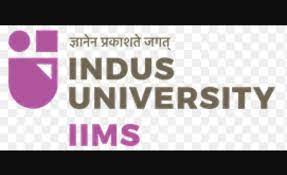
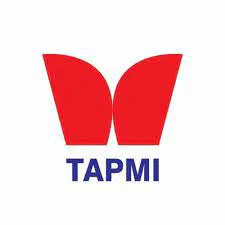

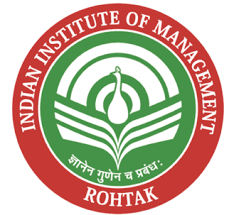
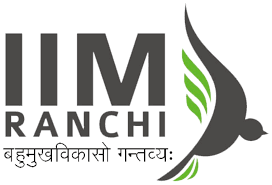
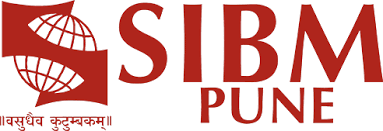
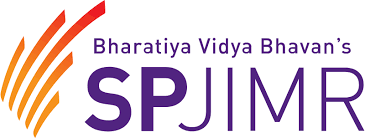


 back
back